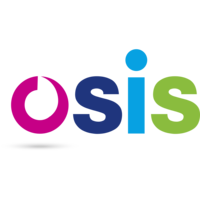OSIS - Open Student Information System
A Belgian university decides to open source their core business
- Track: Lightning Talks
- Room: H.2215 (Ferrer)
- Day: Sunday
- Start: 13:40
- End: 13:55

The Catholique University of Louvain (Université catholique de Louvain - UCL) decided to rewrite their core business applications from Java/EE to Python/Django and make them freely available as open source software. This presentation intends to share with the community the experience on building OSIS, the open source transition, the cultural and technical shift, the engagement of students, teachers and employees on the improvement of their own user experience, the costs implied and the productivity gains.
OSIS (Open Student Information System) is an application designed to manage the core business of higher education institutions. It is free and open source under the terms of GPL v3 public license, aligned with the strong spirit of knowledge sharing and collaboration with the community. The project is sponsored by Université catholique de Louvain (UCL) in the context of its long term goal of modernising its information systems towards the next generation of students, devices, practices and technologies.
We aim that UCL and many other higher education institutions adopt OSIS to be able to maintain, control and monitor the entire student’s career. This extends from the admission to the diploma and all information orbiting this fundamental process, such as planning the academic year, managing partnerships with other institutions for exchange and mobility programs, assigning teachers to courses and courses to students, etc. At the current stage, OSIS is designed to fulfil UCL’s needs, but it can be properly adapted to fulfil more needs coming from other institutions interested in joining the project, which is the case of Université Saint-Louis, Bruxelles.
For us, offering a reusable system is not the only advantage of being open source. It also means:
- fully transparent operations for the entire academic community;
- inspiration for entrepreneurs to build integrated services to improve students academic experience;
- empower departments, endowed with the necessary expertise, to fulfill their particular needs by extending OSIS;
- build up students' experience on real world projects to boost their chances when applying for a job or founding a company; and
- reduced maintenance cost for the University thanks to the range of reliable open source products required by the application.
But the path to open source was not simple. It required lots of discussions to finally find a realistic long term formula to meet the institution's major goals. Now that it is our reality, this history cannot be kept aside, but shared with FOSDEM's community. We are going to answer the following questions during the presentation:
- Why we are sharing our core business applications before any other higher education institution.
- How the academic community persuaded us to use Python/Django/PostgreSQL instead of JavaEE.
- How we are adapting to this new reality that requires much more discipline and high quality craftsmanship work.
- Why there is no doubt we will succeed in this entrepreneurship.
- Why we need your help to better manage and write this open source software.
Speakers
| Hildeberto Mendonça |